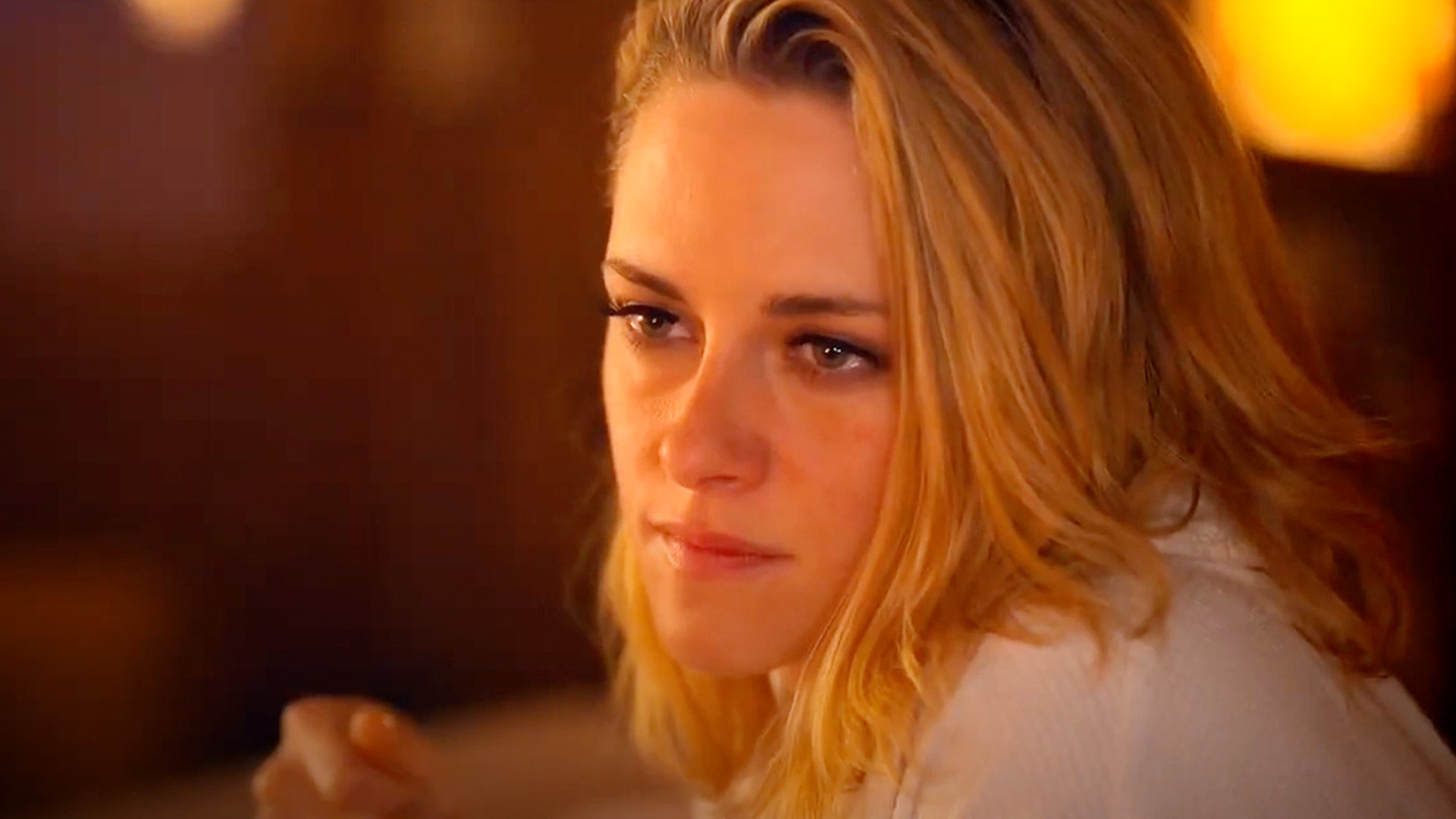Directors: Andrew Zuchero, Sam Zuchero
Writers: Sam Zuchero, Andrew Zuchero
Stars: Kristen Stewart, Steven Yeun
Synopsis: A postapocalyptic romance in which a buoy and a satellite meet online and fall in love after the end of human civilization.
If nothing else, credit must be given where it’s due regarding Sam and Andy Zuchero’s debut feature film, Love Me. The Zucheros have crafted a film that feels startlingly alive, refreshingly unpretentious, and creatively demonstrates that life is full of endless possibilities. Perhaps most importantly, it reminds us that our short time on Earth has no ceiling on what we can make of it.

And if not, fake it until you make it.
The story follows the most extraordinary love story the world has ever known—well, at least because there’s no humanity left on Earth after an unknown event wiped out all humankind across the globe. So, naturally, the romance unfolds between a weather buoy and a satellite. Yes, you read that correctly. Kristen Stewart plays a floating navigational marker named “Me” and has the ability to feel and perceive human emotions. Steven Yeun portrays a celestial piece of rickety tin orbiting Earth, who “Me” refers to as “Iam,” carrying vital information about humankind.
The plot is hard to pin down because, both visually and narratively, the experience is designed to be genre-bending and resistant to categorization. Love Me blends live-action, animation, and screenlife sequences to tell an eclectic story of love and yearning. While at times heavy-handed, the film explores how these two tangible objects—using not the tools of God but those created by humans—embark on an anthropic journey toward personhood. Along the way, they discover connection, adventure, beauty, meaning, joy, purpose, and love, ultimately completing each other.
The Zuchero’s story follows a familiar structure seen in many films that use a unique backdrop to explore what it means to be human. For instance, in the HBO show Barry, the titular character—a sociopath—turns to an acting class as a means of searching for his humanity. Similarly, Love Me uses the filmmakers’ script as a lens to examine the difference between what is real and what is artificial, starting with the vanity of online social media profiles and leading to a more profound journey of self-discovery.

The concept is especially compelling in today’s society, where artificial intelligence is often viewed as a potential threat to human autonomy. For example, Stewart’s “Me” relies on Yeun’s “Iam” and his vast knowledge of the Internet, engaging in subtle conformity and social mimicry to determine personal likes and dislikes. As their search deepens, both characters evolve—reflected in the transformation of the animation and their avatars—creating the illusion of growth and, in turn, adding substance to the story.
However, the approach feels somewhat vain. If “Me” has access to the vast resources of humanity’s beauty, we can assume everything was uploaded to “Iam’s” database. So why couldn’t Earth’s new favorite couple, “Miamie” or “Sataloy,” explore the worlds of Antoine de Saint-Exupéry’s The Little Prince, Gabriel García Márquez’s One Hundred Years of Solitude, or Victor Hugo’s Les Misérables to underscore the point? Why stop there? They could experience the wonder of music with Claude Debussy’s “Clair de Lune,” Beethoven’s “Symphony No. 9 (Ode to Joy),” or— for God’s sake—Mike McCready’s guitar solo from Pearl Jam’s “Alive.” Or better yet, how about the chicken dance in Arrested Development? But I digress.
Yet, we understand that this visual medium is designed to examine what is artificial and explore whether it can be used to find beauty in the world. While the filmmakers make amends by going beyond the artificial, they miss an opportunity to underscore the theme and subtext more profoundly.

I can admit that Love Me can be overly sentimental at times, but that’s because emotions run high when experiencing life’s milestones for the first time. While the story may be stretched too thin, and its ambition outpaces its execution, we shouldn’t punish a film for attempting a unique angle to bridge the gap between what often feels like the vast, impossible search for human connection and the endless void of space.
The Zucheros take real chances with Love Me, which makes the film a journey worth taking. Just like, yada yada yada, love itself.
You can watch Love Me now only in theaters.





